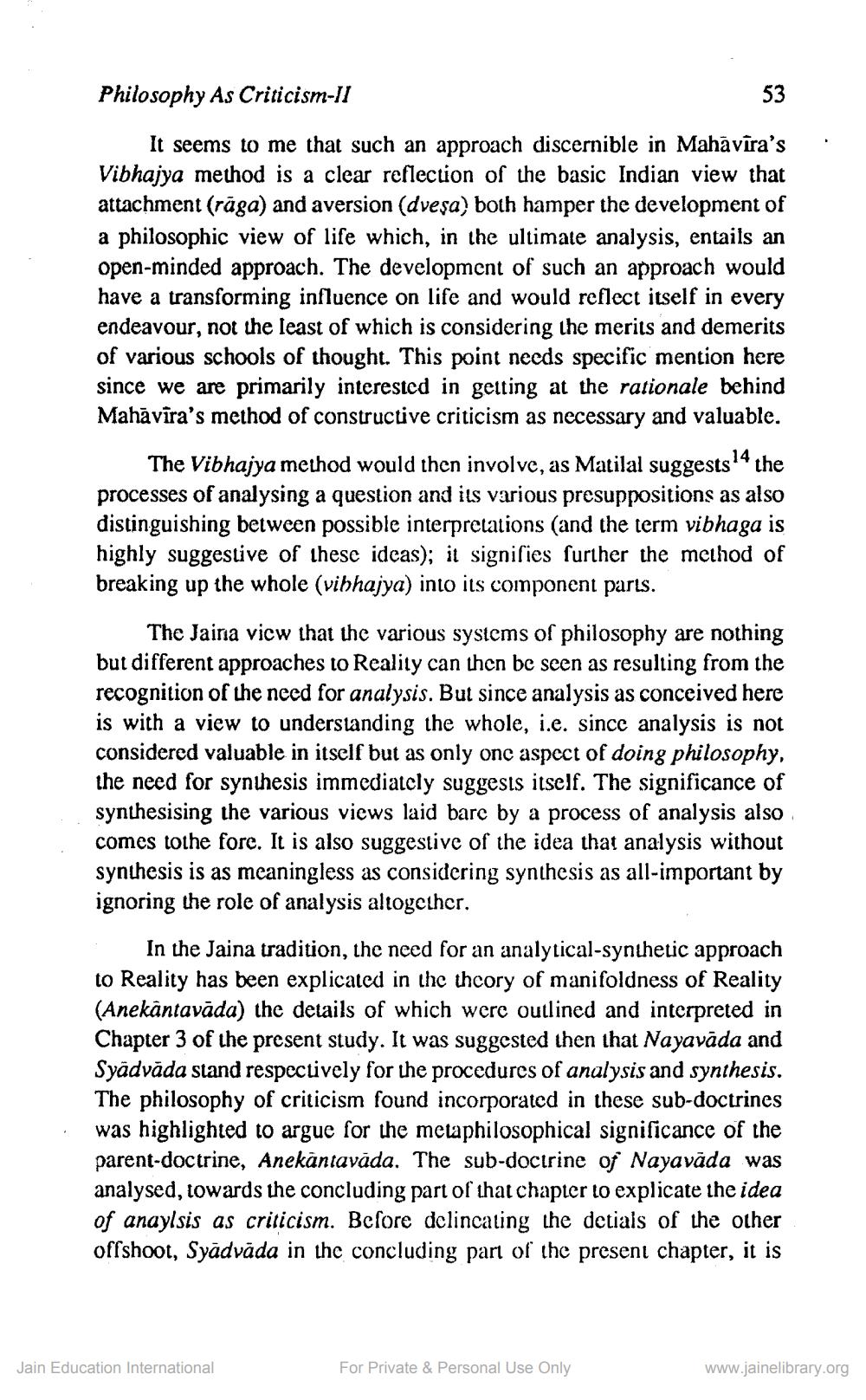________________
53
Philosophy As Criticism-II
It seems to me that such an approach discernible in Mahāvīra's Vibhajya method is a clear reflection of the basic Indian view that attachment (rāga) and aversion (dveşa) both hamper the development of a philosophic view of life which, in the ultimate analysis, entails an open-minded approach. The development of such an approach would have a transforming influence on life and would reflect itself in every endeavour, not the least of which is considering the merits and demerits of various schools of thought. This point needs specific mention here since we are primarily interested in getting at the rationale behind Mahāvīra's method of constructive criticism as necessary and valuable.
The Vibhajya method would then involve, as Matilal suggests the processes of analysing a question and its various presuppositions as also distinguishing between possible interpretations (and the term vibhaga is highly suggestive of these ideas); it signifies further the method of breaking up the whole (vibhajya) into its component parts.
The Jaina vicw that the various systems of philosophy are nothing but different approaches to Reality can then be seen as resulting from the recognition of the need for analysis. But since analysis as conceived here is with a view to understanding the whole, i.e. since analysis is not considered valuable in itself but as only onc aspect of doing philosophy, the need for synthesis immediately suggests itself. The significance of synthesising the various views laid bare by a process of analysis also comes tothe fore. It is also suggestive of the idea that analysis without synthesis is as meaningless as considering synthesis as all-important by ignoring the role of analysis altogether.
In the Jaina tradition, the need for an analytical-synthetic approach to Reality has been explicated in the thcory of manifoldness of Reality (Anekantavāda) the details of which were outlined and interpreted in Chapter 3 of the present study. It was suggested then that Nayavāda and Syädvāda stand respectively for the procedures of analysis and synthesis. The philosophy of criticism found incorporated in these sub-doctrines was highlighted to argue for the metaphilosophical significance of the parent-doctrine, Anekantavāda. The sub-doctrine of Nayavāda was analysed, towards the concluding part of that chapter to explicate the idea of anaylsis as criticism. Before dclincating the detials of the other offshoot, Syadvāda in the concluding part of the present chapter, it is
Jain Education International
For Private & Personal Use Only
www.jainelibrary.org




